Key sports law cases and developments to watch in 2017 - Europe, Middle East, Africa, Asia, and Australia
Monday, 09 January 2017As 2017 begins, we wanted to take a look at the coming year and provide insight into which sports law cases you may wish to follow in 2017.
In this feature, some of the leading sports lawyers in Europe, the Middle East, Africa, Asia, and Australia share their views on what they think are the key sports law issues and developments to follow in 2017.
We would like to thank all of the contributors to this article for taking the time out of their busy schedules to share their views with us.
Featured lawyers:
- Katarina Pijetlovic, Senior Lecturer, Liverpool Hope University, Law Department
- Dr. Emilio García, Head Of Disciplinary and Integrity, UEFA
- Dr Marjolaine Viret, Associate, Bird & Bird
- Luca Ferrari, Global Head, Sports practice, Withers
- Nandan Kamath, Principal Lawyer, LawNK
- Aahna Mehrotra, Head, Sports and Gaming Laws at TMT Law Practice
- Yoichiro Kuriyama, Associate, TMI Associates
- Kei Ikuta, Associate at Nagashima Ohno & Tsunematsu
- Richard Wee, Partner, MahWengKwai & Associates
- James Kitching, Head of Sports Legal Services, Disciplinary, and Governance, AFC
- Hongjun Yao, Associate Professor, Shanghai University of Political Science and Law
- Steven Bainbridge, Head of Sports Law & Events Management, Al Tamimi & Company
- Professor Deji Adekunle, Director General of the Nigerian Institute of Advanced Legal Studies
- Hayden Opie, Senior Fellow and Director of Studies, Sports Law Program, Melbourne Law School
- Cassandra Heilbronn, Senior Associate, MinterEllison
Featured sports business professionals:
- Jaimie Fuller, Executive Chairman, SKINS
- Tracey Lee Homles, Australia & The World, Host of 'The Ticket', ABC News Radio
We hope you enjoy the article. If you think there’s anything you would have liked to have seen be mentioned please feel free to tweet us @LawInSport or email us with your suggestions at
Europe
Katarina Pijetlovic
Senior Lecturer, Liverpool Hope University, Law Department
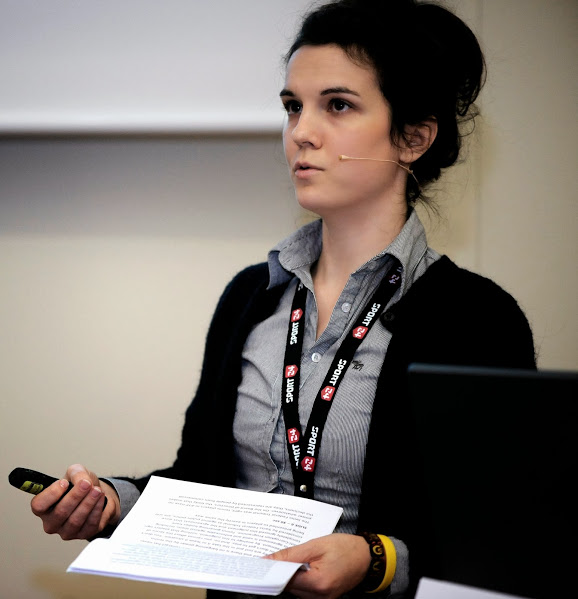 The key sports law issues to watch in 2017 pertain to alternative/breakaway leagues. The decision of the European Commission in ISU case that addresses the issue of legality of clauses in governing bodies’ statutes preventing the establishment of rival competitions is due very soon. The Commission already issued Statement of Objections in the case in which it found the infringement of the EU competition provisions by the ISU sanctions on athletes for participating in such rival competitions. The case has the potential to change the structure of the sports in Europe and profoundly affect the market for organisational services in all sports. Alternative leagues will be free to form without fear of sanctions for the participating clubs or players, without restrictions in the broadcasting market contracts by the governing bodies, and other similar types of restrictions. For example, we might see the establishment of alternative cross-border leagues in football in the near future. Similar legal issues as in ISU are raised by Euroleague Basketball v FIBA and FIBA Europe, and FIBA v Euroleague Commercial Assets (ECA) cases that are also currently pending before the Commission. This is the issue that will doubtlessly mark the 2017 and a legal precedent that the ISU decision might bring will forever change the commercial landscape of sports industry.
The key sports law issues to watch in 2017 pertain to alternative/breakaway leagues. The decision of the European Commission in ISU case that addresses the issue of legality of clauses in governing bodies’ statutes preventing the establishment of rival competitions is due very soon. The Commission already issued Statement of Objections in the case in which it found the infringement of the EU competition provisions by the ISU sanctions on athletes for participating in such rival competitions. The case has the potential to change the structure of the sports in Europe and profoundly affect the market for organisational services in all sports. Alternative leagues will be free to form without fear of sanctions for the participating clubs or players, without restrictions in the broadcasting market contracts by the governing bodies, and other similar types of restrictions. For example, we might see the establishment of alternative cross-border leagues in football in the near future. Similar legal issues as in ISU are raised by Euroleague Basketball v FIBA and FIBA Europe, and FIBA v Euroleague Commercial Assets (ECA) cases that are also currently pending before the Commission. This is the issue that will doubtlessly mark the 2017 and a legal precedent that the ISU decision might bring will forever change the commercial landscape of sports industry.
Dr. Emilio García
Head of Disciplinary and Integrity, UEFA
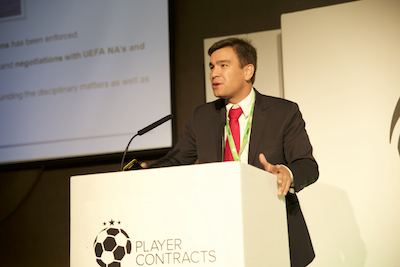 Looking forward to 2017, I’m very curious to get a copy of the motivated CAS ruling on Real Madrid CF v. FIFA (Transfer or minors). Bearing in mind the CAS award on FC Barcelona v. FIFA about the same thematic (CAS 2014/A/3793), the Real Madrid CAS decision might give us new ways of interpreting Article 19 of the FIFA Regulations on the Status and Transfer of Players.
Looking forward to 2017, I’m very curious to get a copy of the motivated CAS ruling on Real Madrid CF v. FIFA (Transfer or minors). Bearing in mind the CAS award on FC Barcelona v. FIFA about the same thematic (CAS 2014/A/3793), the Real Madrid CAS decision might give us new ways of interpreting Article 19 of the FIFA Regulations on the Status and Transfer of Players.
Dr Marjolaine Viret
Associate, Bird & Bird

The year 2017 will be a crucial year to watch for developments in anti-doping and related sports governance aspects. According to the IOC, reanalysis of samples collected during past Olympic Games is ongoing. 2017 should also be a decisive period for the process set in motion in late 2015, when the IOC announced its intent to explore the setting up of an independent testing entity that would be in charge of doping control at the international level. The declared goal of the IOC is to pave the way and have in place such independent process for the 2018 Winter Olympic Games in PyeongChang.
A unique authority replacing the responsibilities of each International Federation – whether on a mandatory or voluntary basis – would require a fundamental reshaping of the testing system, and possibly also of results management. At this point, it is unclear what legal form such new entity would take, who would finance it and who would exercise control over its activities. This and other aspects of its functioning will greatly influence the real contours of its intended ‘independence’.
As to the impact of this entity on the effectiveness of anti-doping, much would depend on how sports-specific expertise that has been developed for decades within International Federations could be transferred to an external entity and maintained up-to-date thereafter. Another question to be considered is how entrusting the independent entity with an International Federation’s doping control tasks would affect that Federation’s ultimate responsibility for compliance with the World Anti-Doping Code.
Finally, the reform could have notable repercussions for practitioners in sports arbitration. The creation of an independent testing entity might indeed go hand-in-hand with disciplinary proceedings in international cases being brought before a single authority, possibly within the realm of the Court of Arbitration for Sport.
Luca Ferrari
Global Head, Sports Practice, Withers
 Looking forward to 2017, it is certainly worth monitoring how the sports institutions manage their current reform process as regards both the UEFA competitions and the FIFA World Cup. On the one hand, on 9 December 2016 the UEFA Executive Committee resolved to change the format for both the Champions League and Europa League, with effect from the 2018/2021 cycle, by guaranteeing Champions League group-stage places to the top four leagues (currently, the Bundesliga, La Liga, the Premier League and Serie A) and redistributing the prize money to better reward historic success in European football. Such reforms were vigorously slammed by the European Professional Football League (EPFL), which contended that the reform was made "without the support and consensus'' of the domestic leagues and would detrimentally increase the sporting and financial gap between the top clubs and the others. In the EPFL’s opinion, UEFA thus breached the Memorandum of Understanding between the two organizations. Accordingly, EPFL terminated the Memorandum of Understanding as of 15 March 2017. As a result of the UEFA’s reform, there could be significant overlapping between the leagues’ domestic fixtures and the UEFA competition schedule. Furthermore, in this scenario, the creation of autonomous continental championships, which would be in direct competition with those run by UEFA, cannot be excluded (along the lines of the antithesis in basketball between the ULEB Euroleague and the FIBA Basketball Champions league). On the other hand, the European Club Association (ECA), while endorsing UEFA's above-mentioned new format, firmly opposed the new FIFA President’s proposals to expand the number of national teams participating in the World Cup as of its 2026 edition. ECA’s position was based on the “unacceptable” number of matches already played by professional footballers, who have been increasingly suffering severe injuries that risk compromising their career. In view of the above, 2017 may be a crucial and intense year of negotiations between the major stakeholders of the football industry.
Looking forward to 2017, it is certainly worth monitoring how the sports institutions manage their current reform process as regards both the UEFA competitions and the FIFA World Cup. On the one hand, on 9 December 2016 the UEFA Executive Committee resolved to change the format for both the Champions League and Europa League, with effect from the 2018/2021 cycle, by guaranteeing Champions League group-stage places to the top four leagues (currently, the Bundesliga, La Liga, the Premier League and Serie A) and redistributing the prize money to better reward historic success in European football. Such reforms were vigorously slammed by the European Professional Football League (EPFL), which contended that the reform was made "without the support and consensus'' of the domestic leagues and would detrimentally increase the sporting and financial gap between the top clubs and the others. In the EPFL’s opinion, UEFA thus breached the Memorandum of Understanding between the two organizations. Accordingly, EPFL terminated the Memorandum of Understanding as of 15 March 2017. As a result of the UEFA’s reform, there could be significant overlapping between the leagues’ domestic fixtures and the UEFA competition schedule. Furthermore, in this scenario, the creation of autonomous continental championships, which would be in direct competition with those run by UEFA, cannot be excluded (along the lines of the antithesis in basketball between the ULEB Euroleague and the FIBA Basketball Champions league). On the other hand, the European Club Association (ECA), while endorsing UEFA's above-mentioned new format, firmly opposed the new FIFA President’s proposals to expand the number of national teams participating in the World Cup as of its 2026 edition. ECA’s position was based on the “unacceptable” number of matches already played by professional footballers, who have been increasingly suffering severe injuries that risk compromising their career. In view of the above, 2017 may be a crucial and intense year of negotiations between the major stakeholders of the football industry.
Asia
India
Nandan Kamath
Principal Lawyer, LawNK
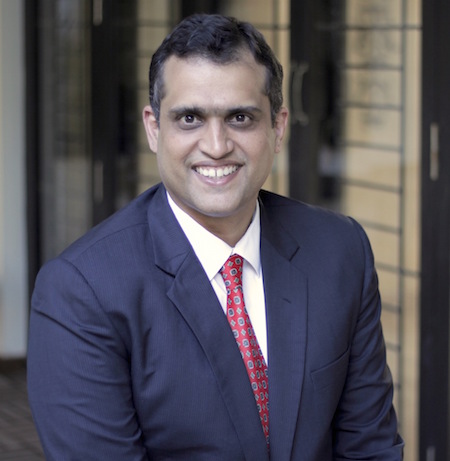
Sports governance and administrative integrity are likely to remain in the glare of the headlights of Indian sports law in 2017. The Supreme Court is expected to open the new year with fresh orders facilitating the enforcement of the Lodha Committee recommendations. How the BCCI and its member state associations will react, and the path ahead for these bodies, remain matters of conjecture. However, governance reform in Indian cricket looks inevitable and the changes will have global implications for the sport at both the International Cricket Council (ICC) and bi-lateral levels. Locally, similar judicial intervention is already being sought in other Indian sporting bodies such as the national football and tennis federations. It will be interesting to see how much headway these forays make in the courts and whether the Lodha Committee’s clearly elucidated principles of governance protocols will become a template for structural reform across sports federations in India. Perhaps 2017 will reveal whether the Indian courts can do what the legislature has failed to – effectively clean the messy stables of Indian sports administration.
The legality of sports betting and the surrounding policy issues could also be a matter of public debate in 2017. We could also see competition and anti-trust law beginning to play a greater role in unlocking the many monopolies and power inequities in Indian sports markets.
Aahna Mehrotra
Head, Sports and Gaming Laws at TMT Law Practice
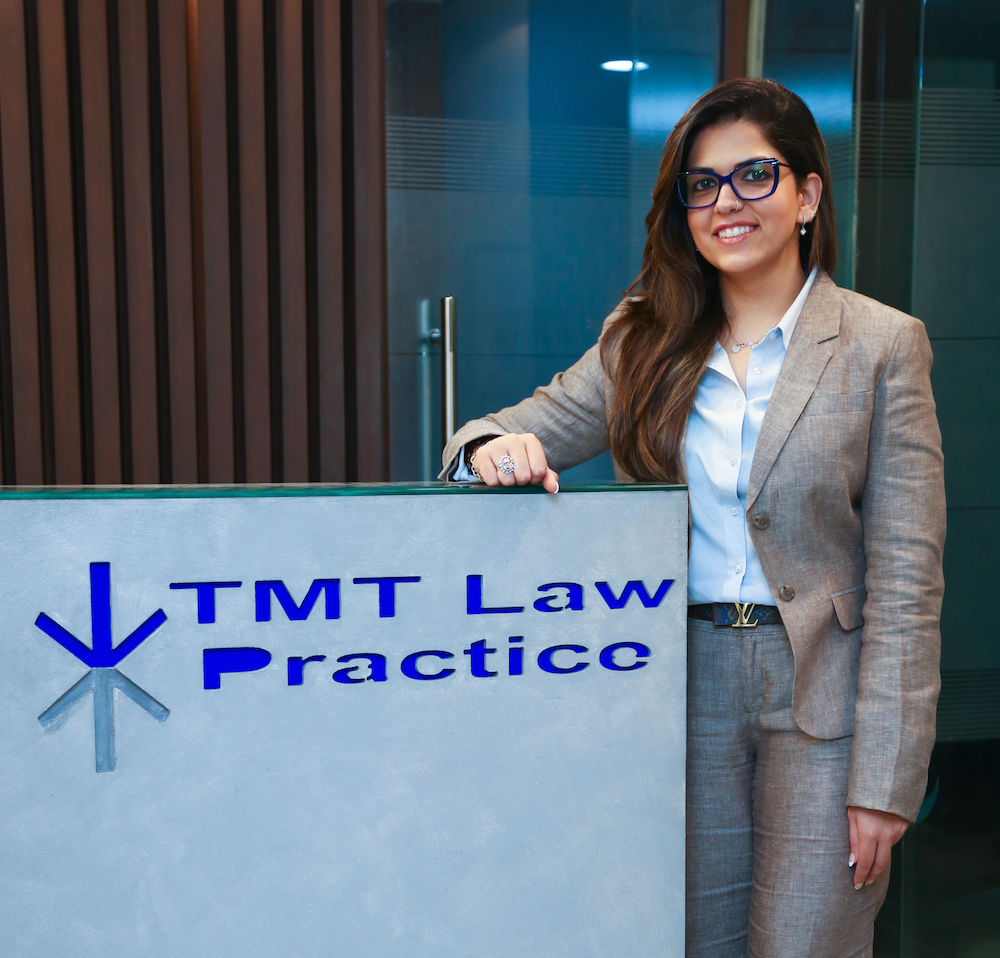
Broadcasting Rights:
Considering the broadcasting rights of the Indian Premier League (IPL), granted by the BCCI earlier come to an end with the 10th edition of the IPL in 2017, it remains to be seen which companies would come forward to purchase rights for the League which is organized by the embattled BCCI. It must be borne in mind that the Supreme Court verdict on the implementation of the Lodha Committee recommendations is still awaited and could be the portent of far reaching changes in the structure of the BCCI. Any restrictions imposed on the functioning of the BCCI could limit its powers and could prove to be impediments in the auction or grant of such rights.
Demonetization and its effect on sponsorships:
Another aspect which could alter the functioning and organization of sporting events is the recent demonetization drive announced and carried out by the Indian Government, by way of which, close to 86.4% of the valid currency notes were declared as obsolete. In light of the continuing shortage of valid legal tender, daily transactions carried out in cash have taken a hit. The cash crunch has adversely impacted the sporting industry, and time will tell how sponsorships will be affected in the coming year. Although it is too early to conclusively state, but keeping in mind the efforts of the Government, and the resilience of event organizers and the sporting industry in mind, the industry may pull through unscathed.
Show Cause Notice by ministry of Youth Affairs and Sports to Indian Olympic Association:
The Sports Ministry in India (MYAS) issued a show-cause notice to the Indian Olympic Association (IOA) on December 28th, 2016 for appointing Mr. Suresh Kalmadi and Abhay Singh Chautala as lifetime Presidents. Both, Mr. Kalmadi and Mr. Chautala have corruption charges against them and have been charge-sheeted. The MYAS in its notice threatened to de-recognize the IOA in the event it chooses to not reverse its decision, as such an appointment is against the principles of good governance. It is pertinent to mention that the IOA was suspended by the International Olympic Committee in 2012, one of the reasons for such suspension being failure of IOA to enforce basic principles of good governance. While both the abovementioned gentleman stepped down from their post, it would be interesting to see if the MYAS now insists upon any sort of re-structuring in the function of the IOA.
Japan
Yoichiro Kuriyama
Associate, TMI Associates

One of the key sports law issues is the anti-ambush marketing legislation for Tokyo 2020 Olympic and Rugby World Cup Japan 2019. Ambush marketing has become one of the hottest disputed topics in recent Olympic Games and other mega sporting events, and is expected to be a controversial issue at the Tokyo 2020 Olympics and Rugby World Cup Japan 2019. The details of any anti-ambush marketing legislation applicable to these events is as yet unclear, although the London Olympic Games and Paralympic Games Act and the Brazil Olympic Act came into force in each country at least six years prior to the year of the Olympic Games.
Another key issue relates to the growth in the popularity of eSports. A Japanese professional football club established an eSports team in 2016, as some European football clubs had already done.Also, the Japan Football Association (JFA) decided to prepare to create a program for eFootball in November 2016. It is expected that eSports will continue to be a hot topic in the sports industry and its growth will involve a number of relevant legal issues, such as rights clearance, eDoping, match fixing, that will be issues to watch for in Japan in 2017.
Kei Ikuta
Associate, Nagashima Ohno & Tsunematsu
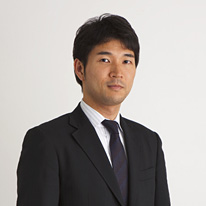
As preparation for the 2019 Rugby World Cup and 2020 Olympic and Paralympic Games, a task force involving the Japanese government was established in 2016 to consider Japan’s anti-doping system. In April 2014, the IOC recommended that the Tokyo Organising Committee of the Olympic and Paralympic Games conduct research regarding the systems for anti-doping investigations and intelligence gathering that have been adopted in Australia and the UK in accordance with Article 5.8 of the WADA Anti-Doping Code 2015 (WADA Code). The Japanese government is also expected to follow Article 22.2 of the WADA Code, which provides: “Each government will put in place legislation, regulation, policies or administrative practices for cooperation and sharing of information with Anti-Doping Organizations and sharing of data among Anti-Doping Organizations as provided in the Code.” One of the purposes of the task force was to discuss these issues to ensure that the upcoming games will be clean and free of doping.
The task force published a final report in November 2016 concluding that it would be necessary to prepare legislation that allows information sharing among relevant organisations such as government departments, including the police and customs, and the anti-doping organisations so that doping violation cases can be spotted without relying solely on the analysis of samples. On the other hand, the final report took a cautious position with regard to the criminalisation of doping. In any case, how the anti-doping system will be set up should be one of the key sports law issues to watch in 2017 in Japan.
Malaysia
Richard Wee
Partner, Dispute Resolution, Head of Sports Law Practice Group, Head of Real Estate Practice Group, MahWengKwai & Associates

We foresee that anti-doping issues will come to the forefront even more, particularly with the SEA Games taking place in Kuala Lumpur, Malaysia in 2017. We will also continue with the development of Sports Law and the efforts to build and create a Sports Law Association around the nations in Asia.
The newly-formed Sports Law Association of Malaysia (SLAM) hopes to lead the way in Malaysia and South East Asia. Initiatives will be taken to fortify and elevate the world of sports in Malaysia by forming a Sports Arbitration faculty. KLRCA is pursuing the formation of a Malaysian Sports Arbitration Tribunal (MSAT) to eventually become a Sports Tribunal for South East Asia, similar to the regime that currently exists in Canada and Australia.
James Kitching
Head of Sports Legal Services, Disciplinary, and Governance, AFC

Match manipulation will continue to be a key issue in Asian sports law in 2017. The other key issue, with reference to football, will be the enforcement of outstanding contractual dues to players, officials, and clubs.
In 2016 the AFC issued its first sanction against a Member Association for failing to properly implement the financial elements of the AFC Club Licensing Regulations. In late 2016, the Saudi Arabian Football Federation refused to issue a licence to Al Ittihad to compete in the AFC Champions League 2017 given the significant amount of overdue payables owed to football creditors.
As more money continues to flow into the Asian game, the strict enforcement of financial regulations to protect football creditors is necessary to both ensure the integrity of the game and enhance professionalism.
China
Hongjun Yao
Associate Professor, Shanghai University of Political Science and Law
The perspective of 2017 in sports law in China may have something to do with the sports investment and administrative reform. Fast-growing sports market in the country will sure draw heavy investment from different sources, and large-cap merger and reorganization may be anticipated.
For the sports administration, the strong influence on the management and operation of sports activities by the government has long been condemned. The excellent performance of Chinese women volleyball team in Rio in contrast of the overall Chinese performance bellow expectation may trigger substantive improvement of the de-administration in sports in the near future.
Middle East
Steven Bainbridge
Head of Sports Law & Events Management, Al Tamimi & Company

Moving into 2017, despite continued concerns regarding energy prices and a less buoyant economic outlook, which are of particular concern in jurisdictions led primarily by government-driven spending, there is every indication that select new events[1] will be added to the already robust schedule of annual sporting activities[2]; and, this will bring new legal challenges and opportunities. Of particular note the development of the Emirates Centre for Sports Arbitration[3] is something we can expect to see take shape in 2017 creating a national model of CAS for sports disputes in the UAE. Elsewhere in the Kingdom of Saudi Arabia, the Council of Ministers has approved plans to privatise top-flight football clubs[4] with a view to increasing investment for facilities and players transfers. At the time of writing a supervising committee is determining the specifics of the process and a number of interested investors are expressing interest. Of more general application, a GCC-wide value added tax (VAT) has been agreed commencing in 2018, and while specifics are yet to be detailed, we are seeing increased emphasis on analyzing precisely how that will affect businesses[5] . Within the sports sector that includes what steps (if any) can legally be taken to allocate the impact, particularly within existing mid to long term agreements that did not previously make specific provision for such levies.
Africa
Nigeria
Professor Deji Adekunle
Director General of the Nigerian Institute of Advanced Legal Studies

1. We should look out for the enactment of a new NFF law which should provide for a National Court of Arbitration for Sports. The Act when enacted will ensure quicker resolution of disputes in a manner consistent with the statutes
2. There is a move towards the re-invigoration of the Nigerian professional soccer league and we should in 2017 expect regulations primarily aimed at a balanced membership of the League management Committee to protect the interests of proprietors of professional clubs on the one hand and stakeholders like players, sponsors and administrators.
Australia
Hayden Opie
Senior Fellow and Director of Studies, Sports Law Program, Melbourne Law School

Looking ahead to 2017, there could be stormy waters on the industrial relations front with both the AFL and NRL players yet to resolve on collective bargaining agreements. Negotiations usually follow the sale of media rights and in the second half of 2015 both the AFL and NRL struck record deals. Currently, there is an impasse between the AFL and the players, and turmoil in the NRL between the Commission and the clubs has pushed the negotiation of a CBA into the background. Cricket is yet to negotiate its media rights into the future but there are already indications of Cricket Australia and the Australian Cricketers’ Association squaring off.
Again integrity is likely to be a major theme for law in sport in 2017 with a number of investigations underway into suspected match-fixing and on-going court cases concerning doping in horse racing. The involvement in 2016 of a number of club officials in breaches of doping and financial rules suggests a need for action by the leagues aimed at changing management culture and improving education. Safety may also take a more prominent role with player associations and agents showing increased interest in issues surrounding concussion and its long-term health impact on players in some sports.
Cassandra Heilbronn
Senior Associate, MinterEllison

The key sports law issue for Australia in 2017 will be the further discussion of the Alex McKinnon personal injury claim against Jordan McLean, his Club the Melbourne Storm and the National Rugby League. However, given the way personal injuries matters progress, there is unlikely to be an outcome in 2017. The recent initiation of the claim has brought about discussion that it is the first claim by a professional sportsperson which names the overarching body as a respondent. Given the pre-court procedures that must be followed for personal injuries claim, it is unknown if this is entirely correct and an official comment by the NRL on this point has not been located. The claim has also initiated discussion from the general community about the ability of a sportsperson, when knowing the inherent risks of playing a game (including rugby league) to make a claim following an injury. One of the leading cases on this issue is that of Rogers v Bugden back in 1993, which also involved rugby league. There is unlikely to be any significant development in terms of the duty of care and vicarious liability position that is well established in professional sports, however the McKinnon case will focus on the laws of the game, what constitutes a legal tackle, along with the actions a claimant took in the mechanism of the injury. The involvement of the NRL will also come under intense discussion as to whether or not it owed McKinnon a duty of care and if that duty was breached. Whatever the decision, the initiation of such a claim will likely result in an increase in sports liability personal injuries claims over the short term.
Another area that is slowly generating more focus is that of image rights and agreements with players through a company or trust. The Australian Taxation Office has issued a number of (non-binding) private rulings on the issue. The significance of the private rulings is that players are able to assign their image rights to a family company or trust, and use that company to contract with third parties for the non-exclusive use of their image for a fee. The net result is that payment by the third party will be made to the company, which would invariably be subject to a lower tax rate than that of a direct payment to the player. There can be significant tax consequences if the agreement between the player and the company is not properly articulated, and further if the agreement between the company and the third party includes a requirement for endorsements or appearance fees. As the rules relating to marquee and overseas players develops here in Australia, along with the increased popularity of our local players with third parties wanting to capitalise on their popularity, particularly through social media, the area relating to image rights, the scope of agreements and the tax implications will see further discussion and perhaps such agreements becoming more commonplace as they already are overseas.
Jaimie Fuller
Executive Chairman of SKINS

In an Australian context, I think an interesting issue to watch will be around discrimination in sport particularly for female athletes. Sport is trying to make amends by introducing a pay structure and greater professionalism into women’s sport, but there’s still a very long way to go in terms of the financial rewards, media and sponsor recognition and attitudes. You only have to look at the very recent news and commentary around pregnancy for women athletes: when is it a ‘health and safety’ issue – as Cricket Australia argues – rather than an issue of discrimination?
Internationally, there will continue to be a fallout from the McLaren Report, not just in terms of doping issues but the impact on Russia, the major events its scheduled to host in the next 12-18 months and Russia’s role and significance in the sporting landscape. These coalesce into a sports governance issue.
I see governance as the number one sports law issue that needs to be addressed and where there is significant failure.
We saw it with FIFA in 2015 – and no-one should think that is fixed in any way, shape or form! – and we have seen it in 2016 with the interdependence of the relationships between major organisations such as the IOC, the IAAF, WADA and an influential nation such as Russia.
Unless and until sports governance is implemented at a higher standard, we will continue to have failures in how sport operates – whether it be doping, match-fixing, homophobia, racism, gender inequality or other areas of concern.
Tracey Lee Holmes
AUSTRALIA & THE WORLD, Host of 'The Ticket', ABC News Radio

A week before Christmas it was confirmed that former Newcastle Knights rugby league player, Alex McKinnon, was suing the National Rugby League (NRL) and Melbourne Storm player, Jordan McLean, after he was left paralysed from a tackle during the 2014 season.
It’s the first time the national governing body has been sued for a breaching in the duty of care. It has the potential to be a landmark case.
References|closed
[1] The introduction of external investment for more defined and targeted products such as 3 rounds of the Lamborghini Super Trofeo Championship and the new European Challenge Tour event will complement continued growth in the number of youth academies (cricket and football in particular) and leisure/lifestyle/niche sports ranging from triathlons, zip-lines and cliff-diving to drone racing and power-boating. This is likely to be complemented by continued sponsorship of external sporting activities (Repucom, “Defining the trend: How increasing investment from Asia and the Middle East is turning them into sport’s Emerging Giants”, https://repucom.net/emerging-giants/, 12 January 2015 and UAE investment that saved Lampre-Merida WorldTour professional cycling team that was to have been TJ Sport: https://cyclingquotes.com/news/tj_sport_becomes_uae_abu_dhabi_and_gets_worldtour_license/)
[2] In the UAE in particular, world class annual horseracing, golf, tennis, cycling, rugby and motorsports events provide a solid framework around which the tourism and hospitality calendar is supplemented to add one-off or periodic international events such as swimming, badminton, squash and table tennis tournaments as well as exhibition matches in other sports.
[3] The draft law was passed by the Federal National Council in May 2016 (for further information see: https://www.zawya.com/story/UAEs_FNC_passes_bill_on_Emirates_Centre_for_Sport_Arbitration-WAM20160517143104983/).
[4] Planned privatization across a number of sectors has been in motion since an announcement in 2015 and top-flight KSA football clubs have recently been specifically included (see further at: https://gulfbusiness.com/saudi-approves-privatisation-professional-football-clubs/)
[5] 'How VAT will impact businesses in UAE', Gulf News, 28 February 2016, last accessed 9 January 2017, https://gulfnews.com/business/economy/how-vat-will-impact-businesses-in-uae-1.1680439





